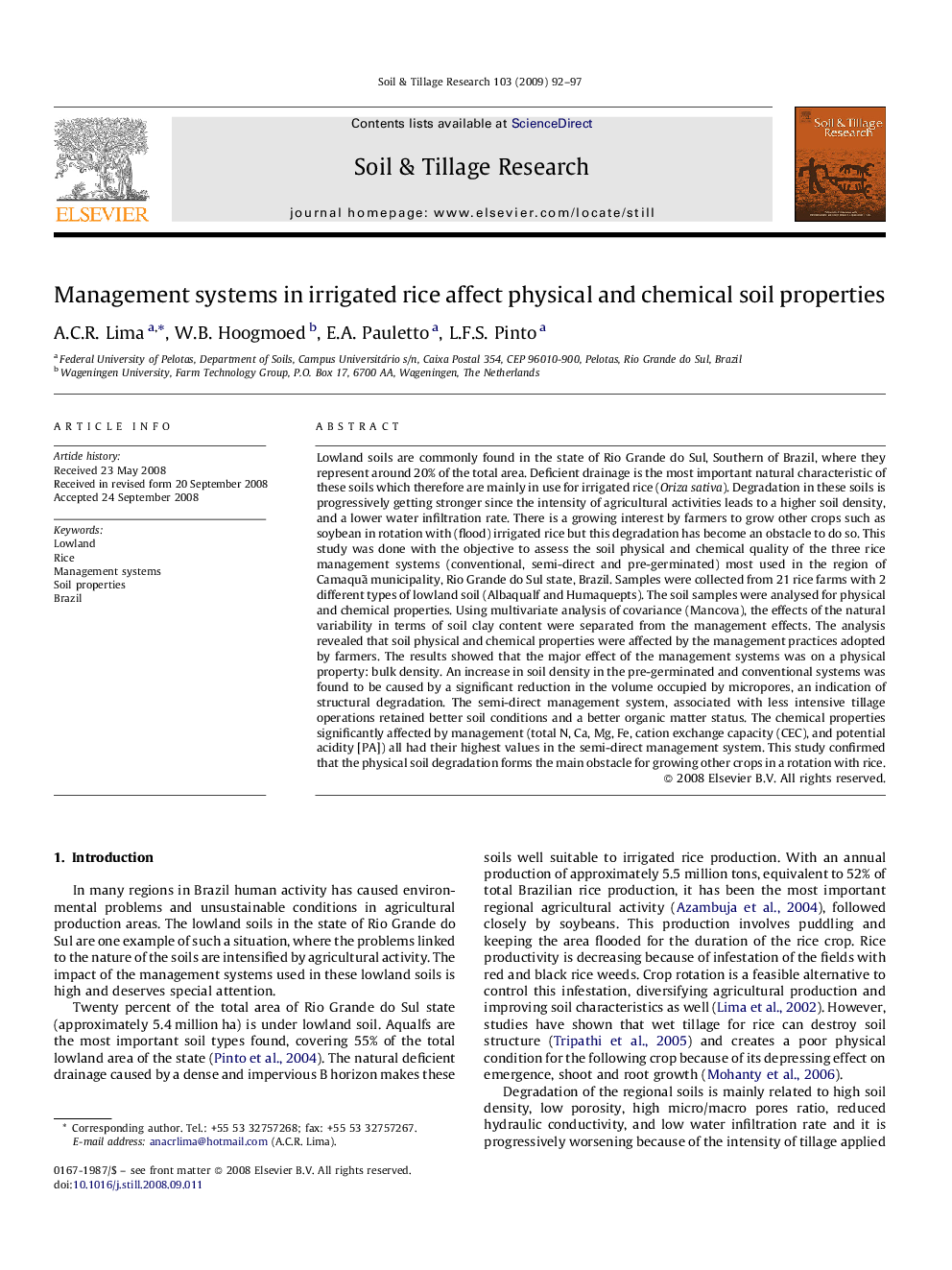| Article ID | Journal | Published Year | Pages | File Type |
|---|---|---|---|---|
| 306354 | Soil and Tillage Research | 2009 | 6 Pages |
Lowland soils are commonly found in the state of Rio Grande do Sul, Southern of Brazil, where they represent around 20% of the total area. Deficient drainage is the most important natural characteristic of these soils which therefore are mainly in use for irrigated rice (Oriza sativa). Degradation in these soils is progressively getting stronger since the intensity of agricultural activities leads to a higher soil density, and a lower water infiltration rate. There is a growing interest by farmers to grow other crops such as soybean in rotation with (flood) irrigated rice but this degradation has become an obstacle to do so. This study was done with the objective to assess the soil physical and chemical quality of the three rice management systems (conventional, semi-direct and pre-germinated) most used in the region of Camaquã municipality, Rio Grande do Sul state, Brazil. Samples were collected from 21 rice farms with 2 different types of lowland soil (Albaqualf and Humaquepts). The soil samples were analysed for physical and chemical properties. Using multivariate analysis of covariance (Mancova), the effects of the natural variability in terms of soil clay content were separated from the management effects. The analysis revealed that soil physical and chemical properties were affected by the management practices adopted by farmers. The results showed that the major effect of the management systems was on a physical property: bulk density. An increase in soil density in the pre-germinated and conventional systems was found to be caused by a significant reduction in the volume occupied by micropores, an indication of structural degradation. The semi-direct management system, associated with less intensive tillage operations retained better soil conditions and a better organic matter status. The chemical properties significantly affected by management (total N, Ca, Mg, Fe, cation exchange capacity (CEC), and potential acidity [PA]) all had their highest values in the semi-direct management system. This study confirmed that the physical soil degradation forms the main obstacle for growing other crops in a rotation with rice.
